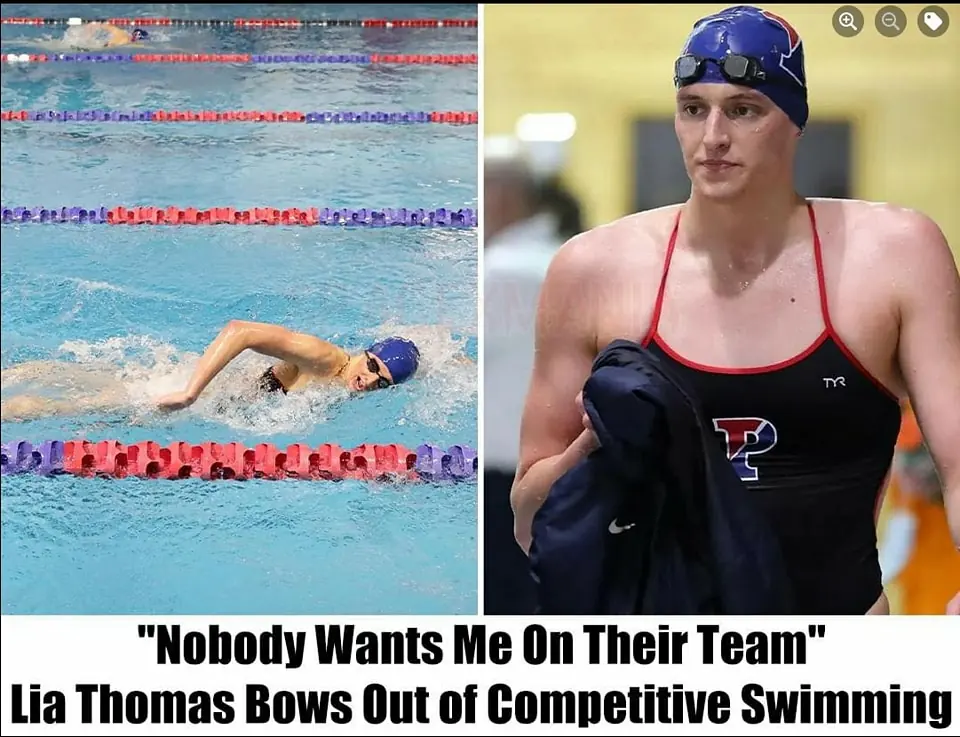Lia Thomas, a Well-Known Swimmer, Steps Away from Competitive Swimming

In a heartfelt statement posted yesterday, Lia Thomas, a renowned swimmer, announced her unexpected decision to retire from competitive swimming. Citing the emotional toll and a sense of loneliness, Lia expressed the challenges she faced as a transgender athlete in a sport she holds dear.
Her statement reads, “The waters have been turbulent, not due to the physical demands but the constant battle to seek acceptance and fairness in a sport I adore. No athlete should feel isolated or singled out for their identity rather than recognized for their achievements.”
Leah’s retirement comes after months of heated debate, petitions and controversy surrounding transgender athletes competing in women’s sports. Her journey shines a light on the challenges transgender athletes face in and out of sports. As the story unfolds in the context of public scrutiny, political debate and ethical considerations, it forces us to think about the future of competitive sport and the experiences of future athletes.
The Need for Nuance and Compassion in Athletes’ Careers
Supporters of Leah Thomas see her retirement as a call to athletes to take a sensitive and inclusive approach to career management at a time of deep loss for the sport and debate over its identity. Critics, on the other hand, have panned its performance and raised questions about its possible physiological benefits. As the world of sport grapples with the ethical, biological and social factors surrounding transgender athletes, we must consider how this moment will shape the development of competitive sport and influence the experiences of future athletes.
Promoting collective thinking about acceptance and space for all athletes
Leah Thomas’ decision to retire is more than a personal journey. We need a moment of collective reflection about the opportunities, acceptance and space we provide to all athletes, regardless of gender identity. In addition to the challenges she faced, Leah’s story highlights the need for an international athletics community that promotes fairness, respects diversity and maintains competitive integrity. This applies to athletes of all gender identities and practices, including those who identify as transgender.
Balancing inclusion and equity in a traditionally divided field
But fundamental questions still remain. How can inclusion and fairness be balanced in a field that has long been divided by biological lineage? Leah Thomas’ experience highlights the need to rethink the rules of sport, especially those related to gender identity and biological differences. Recognizing that outdated policies may no longer be sufficient for current and future athletes can help bridge the gap between supporters and opponents.
Comprehensive discussion of transgender athletes’ rights and fair competition

